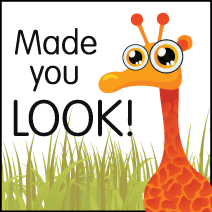
By: Patrick Troyer, Paulding SWCD
The final bells for summer vacation may have rung way back in May, but for many Paulding County students, the learning has not stopped. Visitors and students at the Paulding County Fair and Ann’s Bright Beginnings Preschool enjoyed learning about many great things about the outdoors all summer long. Some topics covered included water quality, composting, wildlife, cover crops, owls, and more! Here are some of our summertime highlights.
Visitors to our activities table at the Paulding County Fair had fun making a cover crop buddy along with edible soil, lake in a bag, and an owl. The Edible Soils activity takes chocolate chops, butterscotch chips, chocolate pudding, Oreo cookies, green food coloring, and gummy worms to learn about what makes up each soil horizon and the life living in the soil. The Cover Crop Critter allowed visitors to learn about the amazing benefits of cover crops and watch their seed grow! They took a cup of soil, seed, and then decorated their cup with eyes and a mouth. Those who took part in the Lake in a Bag activity started out with a bag of clear gel to represent a nice clean lake but notice how quickly the quality of the water in their lake changes once pollutants such as fertilizer, pet waste, car fluids, and more affect the quality of their water and lead to the formation of algal blooms that close beaches and impact drinking water supplies.
Once again, the summer program students at Ann’s Bright Beginnings Preschool enjoyed learning about a variety of topics that included owl pellets, vermicomposting, sinkholes, and thunderstorms to name a few. One favorite of the students is learning all bout owls and owl pellets! Did you know that owls could produce up to two pellets per day based on the amount of food that they consume? Everyone was amazed to learn this fact and so many other cool ones about our owls! Owl pellets are the non-digestible portions of the owl’s meal such as bones and feathers that are collected and formed into pellets. The owls were very hungry as there was many skulls found of various rodents, hipbones, ribs, along with many more!
Composting is also a favorite among the kids as they get to see the amazing things that worms do for the health of our soil. When talking about vermicomposting, it certainly helps to talk a little about the worms themselves. Red worms live in the first few inches of the soil where there is plenty of moisture and organic matter to break down. Worms belong to a group of organisms known as decomposers whose job it is to take dead and decaying organic material, recycle the nutrients from these materials, and allow for a continuous supply of nutrients to sustain an ecosystem with a healthy, fertilized soil.
Worms will eat a variety of materials such as carrots, potatoes, tomatoes, pumpkins, apple cores, banana peels. They like a moist environment because they get the oxygen required for survival by obtaining it from water soaking it up through their skin, but they do not like too much water as it can cause them to drown. Everyone loved getting to see the worms in the compost bin and then taking part in a worm relay that allowed them to use their fine motor skills to use their “bird beaks” to pick up worms and transport them to the bird nest to feed the hungry baby birds.
Do any of these programs or perhaps another sound good to you? Give the Paulding SWCD a call at 419-399- 4771.










